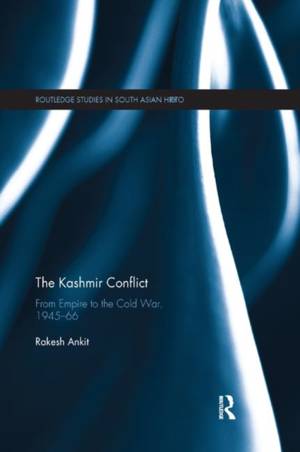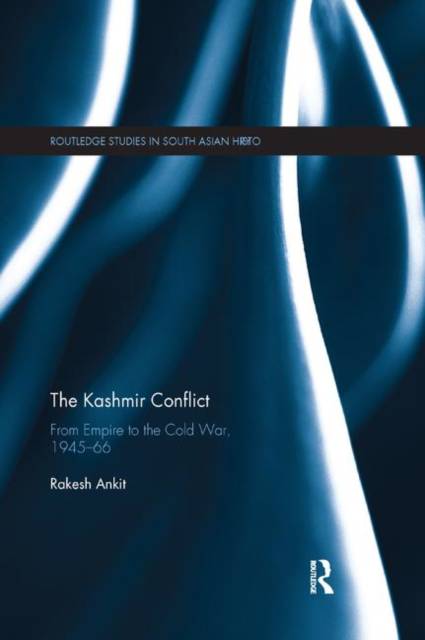
- Afhalen na 1 uur in een winkel met voorraad
- Gratis thuislevering in België vanaf € 30
- Ruim aanbod met 7 miljoen producten
- Afhalen na 1 uur in een winkel met voorraad
- Gratis thuislevering in België vanaf € 30
- Ruim aanbod met 7 miljoen producten
Omschrijving
This book presents a study of the international dimensions of the Kashmir dispute between India and Pakistan from before its outbreak in October 1947 until the Tashkent Summit in January 1966. By focusing on Kashmir's under-researched transnational dimensions, it represents a different approach to this intractable territorial conflict. Concentrating on the global context(s) in which the dispute unfolded, it argues that the dispute's evolution was determined by international concerns that existed from before and went beyond the Indian subcontinent.
Based on new and diverse official and personal papers across four countries, the book foregrounds the Kashmir dispute in a twin setting of Decolonisation and the Cold War, and investigates the international understanding around it within the imperatives of these two processes. In doing so, it traces Kashmir's journey from being a residual irritant of the British Indian Empire, to becoming a Commonwealth embarrassment and its eventual metamorphosis into a security concern in the Cold War climate(s). A princely state of exceptional geo-strategic location, complex religious composition and unique significance in the context of Indian and Pakistani notions of nation and statehood, Kashmir also complicated their relations with Britain, the United States, Soviet Union, China, the Commonwealth countries and the Afro-Arab-Asian world.
This book is of interest to scholars in the field of Asian History, Cold War History, Decolonisation and South Asian Studies.
Specificaties
Betrokkenen
- Auteur(s):
- Uitgeverij:
Inhoud
- Aantal bladzijden:
- 250
- Taal:
- Engels
- Reeks:
Eigenschappen
- Productcode (EAN):
- 9780367877682
- Verschijningsdatum:
- 12/12/2019
- Uitvoering:
- Paperback
- Formaat:
- Trade paperback (VS)
- Afmetingen:
- 156 mm x 234 mm
- Gewicht:
- 367 g

Alleen bij Standaard Boekhandel
Beoordelingen
We publiceren alleen reviews die voldoen aan de voorwaarden voor reviews. Bekijk onze voorwaarden voor reviews.











